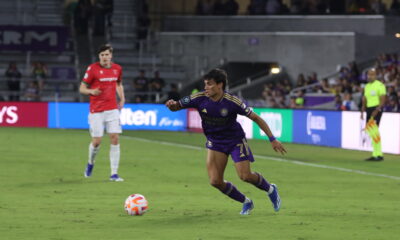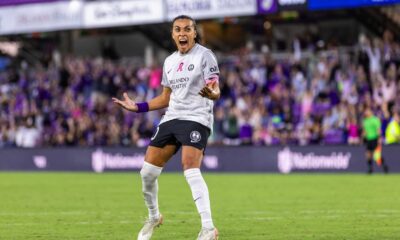Orlando City
Orlando City vs. Columbus Crew: Final Score 3-2 as Urso’s Goal Lifts Lions to Seventh Straight Result
The Lions blew a 2-0 lead but Junior Urso called game and Adam Grinwis won his first MLS game since 2018.
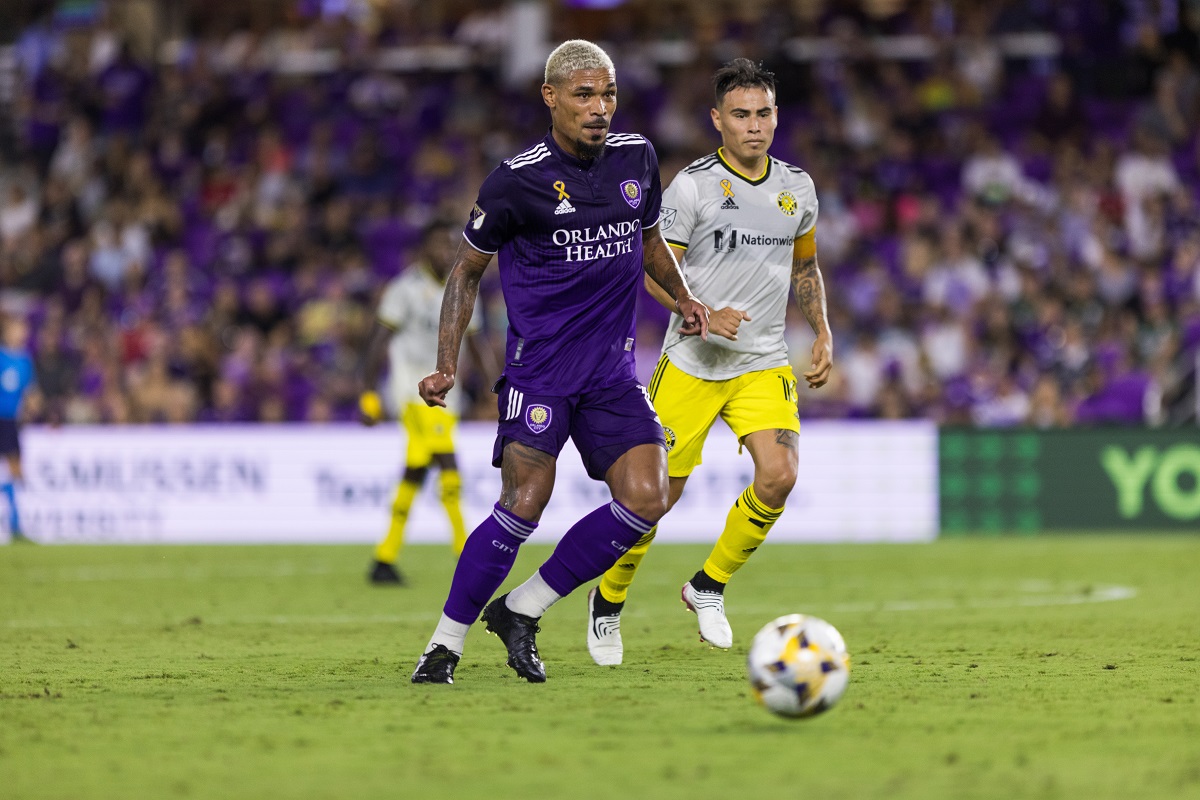
Orlando City looked like it would cruise to an easy win over the Columbus Crew at Exploria Stadium after getting goals from Daryl Dike and Silvester van der Water to go up 2-0. But Antonio Carlos scored a bizarre own goal early in the second half, and the Crew tied it up moments later before Junior Urso’s goal lifted the Lions (10-4-8, 38 points) to a 3-2 win over Columbus (7-10-6, 27 points).
The win lifted the Lions to their longest unbeaten streak of the year at seven matches (3-0-4) and it was Orlando City’s fifth consecutive win over Columbus. Orlando jumped back into second place in the Eastern Conference with the wins tiebreaker over Nashville.
“It was a great effort by the players,” Orlando City Head Coach Oscar Pareja said after the match. “Once again they took us over many hurdles today. The game was like a rollercoaster of emotions for us — dominating not just the score but dominating the game in the first half. Then we conceded two goals that came from nowhere. That put us in a difficult situation emotionally.”
Pareja became the club’s winningest coach in the MLS era, surpassing Jason Kreis’ 65 wins.
With Pedro Gallese on international duty and Mason Stajduhar unavailable due to injury, Pareja started Adam Grinwis in goal for the first time since he was re-signed. Grinwis lined up behind a back line of Joao Moutinho, Robin Jansson, Carlos, and Ruan. Joey DeZart and Urso started in central midfield, with Chris Mueller and van der Water on the outside and Nani and Dike up top in the attack.
Nani got the game’s first shot attempt with a long free kick that he got on frame but from that distance Eloy Room was able to get over and make the save in the 10th minute.
Six minutes later, Ruan got down the right side and cut a pass back for Dike who directed it toward goal. The ball hit a defender and came back off Dike and caromed toward the net but Room made the save.
Columbus was dangerous on the counter and from the wings, and Derrick Etienne’s cross just needed a touch in the 21st minute but none of his Crew teammates were close enough to provide it.
Mueller cut inside and had an excellent scoring chance in the 24th minute, but he made a mess of his right-footed effort and hit it into the sky. Nevertheless, the Lions opened the scoring moments later.
Nani won the ball and sent it forward over the top from his own defensive half. Dike out-muscled Aboubacar Keita and broke in on goal down the right. He faked a couple of times and then smashed a shot into the roof of the net to make it 1-0 in the 26th minute. There was a delay for the video assistant referee to take a look to see if Nani had fouled Pedro Santos, but the goal was awarded. It was Dike’s third of the year and first since June 22 vs. San Jose.
“It was a good win from Nani and then, you know, battling with my UVA teammate Abouba (Keita),” Dike said. “Once I got the ball I just saw the grass in front of me and the goal in front of me. I think that’s when the instincts kind of kick in and that’s when you do anything you can to get the ball in the back of the net, and that’s where it ended up.”
The Lions struck again three minutes later. Ruan cut a ball back from the right corner to van der Water, who sent what appeared to be a cross in for Mueller but he couldn’t get a touch on it and it bounced into the net to double Orlando’s lead in the 29th minute. It was the Dutchman’s first goal since July 30 against Atlanta and his third of the year.
Columbus spent much of the rest of the half winning the ball in the middle of the field and trying to score in transition. Harrison Afful sent a cross/shot just wide of the far post in the 32nd minute. Grinwis then made a spectacular save to deny Lucas Zelarayan from outside the box in the 36th minute. Zelarayan had a couple of dangerous free kick opportunities but hit them off the wall of defenders as the half wound down.
The best chance for Orlando down the stretch fell for Mueller but he fired his shot on target only for Dike to stray into its path and block it. The Lions took a 2-0 lead into the half but the Crew had built some momentum in the final minutes of the opening 45.
Columbus held the advantage in shots (8-7) but Orlando got more on target (4-1). The Crew held the advantage in possession (51.7%-48.3%), passing accuracy (81%-79%), and corners (5-1).
The Lions roared out of the locker room looking to put the match away and nearly did so in the 46th minute. Urso stole the ball from Santos, took it to the top of the box and tried to finesse it around Room, just inside the left post. However, the Crew keeper did well to make a diving, one-handed save.
The Crew got back into the match on a strange play. The ball was knocked high in the air with two Lions and one Columbus player about 10 yards in front of Grinwis’ goal. Carlos went high to head it away but ended up nodding it just inside the right post and into his own net to put the Crew on the board in the 52nd minute.
“It was a fluky moment,” said Grinwis, who won in his first MLS start since 2018. “It took a little deflection. The ball went sky high and I kind of assessed the situation. I saw Antonio Carlos going up to battle at six yards away. I would take him 10 (times) out of 10 in this league to win that header and he did, and it was just an unfortunate bounce where it kind of comes back towards school, as opposed to going away from it.”
That goal seemed to unsettle the Orlando defense, as the Lions conceded the equalizer just two minutes later. A good passing sequence by the Crew, combined with Carlos stepping up and leaving room behind him, sent Miguel Berry in behind and he beat Grinwis to tie things up at 2-2. VAR Jorge Gonzalez took a long look at the play to see if Etienne was offside in the buildup to the goal. The play was close but it wasn’t judged to be a clear and obvious error and the goal stood up.
“It was a tough moment for us and that’s when the character, the togetherness, and the glue that this team has came out again and took us over that hurdle,” Pareja said.
While waiting for the video review, Dike was in the center circle, visibly urging the crowd to make noise.
“I looked around and everyone was kind of obviously in shock, because going up from two-nil up to being 2-2, I think it’s a big shock,” Dike said. “In moments like that I truly believe in the 12th-man effect. With the crowd pushing us, you can instantly see the players, including myself, having a little lift, having a little extra burst of energy and extra belief. I think having that kind of support around you, especially in a situation like that, is important.”
Pareja sent on Mauricio Pereyra — a player who he said he didn’t want to use for more than a few minutes due to his ongoing recovery from a knock — and Benji Michel just after the goal to settle the team down and it worked.
“The game was asking for somebody to settle the pace of the team and just try to be more creative in that zone,” Pareja said. “Just being able to bring the boys from the bench now and have people who can change the direction of the game, it will make us a very strong team.”
Just eight minutes after the subs were introduced, the Lions took the lead. Dike played a ball back to Urso just outside the area and the Bear picked out a spot and fired through traffic just inside the left post to restore Orlando’s lead at 3-2. Room didn’t see the shot come through the crowd until it was too late to do anything about it and the eventual game-winner found its way home in the 69th minute. Like Dike and van der Water, Urso scored his third of the year.
“It was a great third goal,” Pareja said.
With the Crew needing a goal, Caleb Porter sent on some offensive subs in the form of Erik Hurtado and Bradley Wright-Phillips. Orlando continued to stay organized and looked for insurance, which Mueller nearly found in the 77th minute when he sent a ball toward the net that sliced just wide to the right.
Columbus sent in crosses, looking for someone to get onto one, but most of those found the heads of Carlos, Jansson and Moutinho. Pereyra sent a ridiculous ball behind Vito Wormgoor in the 84th minute that should have provided an insurance goal by substitute Tesho Akindele. Akindele beat Room from the left side, only to see his shot skip an inch or two wide of the right post.
Pareja sent on Rodrigo Schlegel for Mueller and went five at the back for the final minutes, and the Lions were able to prevent any good chances and spent some time taking the ball to the attacking corners to bleed clock. The ref blew the full time whistle just after Moutinho blasted a shot just wide of the left post from the top of the area.
Orlando City held a slim edge in shots (13-12) and had more on target (6-2), while Columbus won more corners (5-2), and held slight advantages in possession (51.9%-48.1%) and passing accuracy (82.6%-81.7%).
“There are things that we need to be better, of course,” Pareja said. “We would like to keep being solid defensively. But scoring three goals today by the players is great.”
While it was far from a perfect win, it was an emotional one for Grinwis, who battled back from a torn ACL while playing at the USL Championship level. To get back to winning an MLS game was a great moment for him.
“It’s just an honor to play in front of such a great committed fan base. Feels good to be home,” Grinwis said after getting his first MLS win since 2018. “Tough to put into words. I think these are the kinds of situations I was dreaming about and was telling myself, ‘No, I believe it can happen,’ although I’ve not seen anybody go through an injury in the second division and then find their way back into MLS and then play.
“But this game is crazy, and through a lot of prayer and a lot of hard work, I found myself in this position. And I want to hold on tight because it feels amazing to be back out there.”
The Lions will travel north to face Atlanta United on the road next Friday night in their next match.
Orlando City
Examining the Sustainability of Ramiro Enrique’s Scoring Explosion
Is Ramiro Enrique’s scoring outburst sustainable, or is a regression to the mean on the horizon?
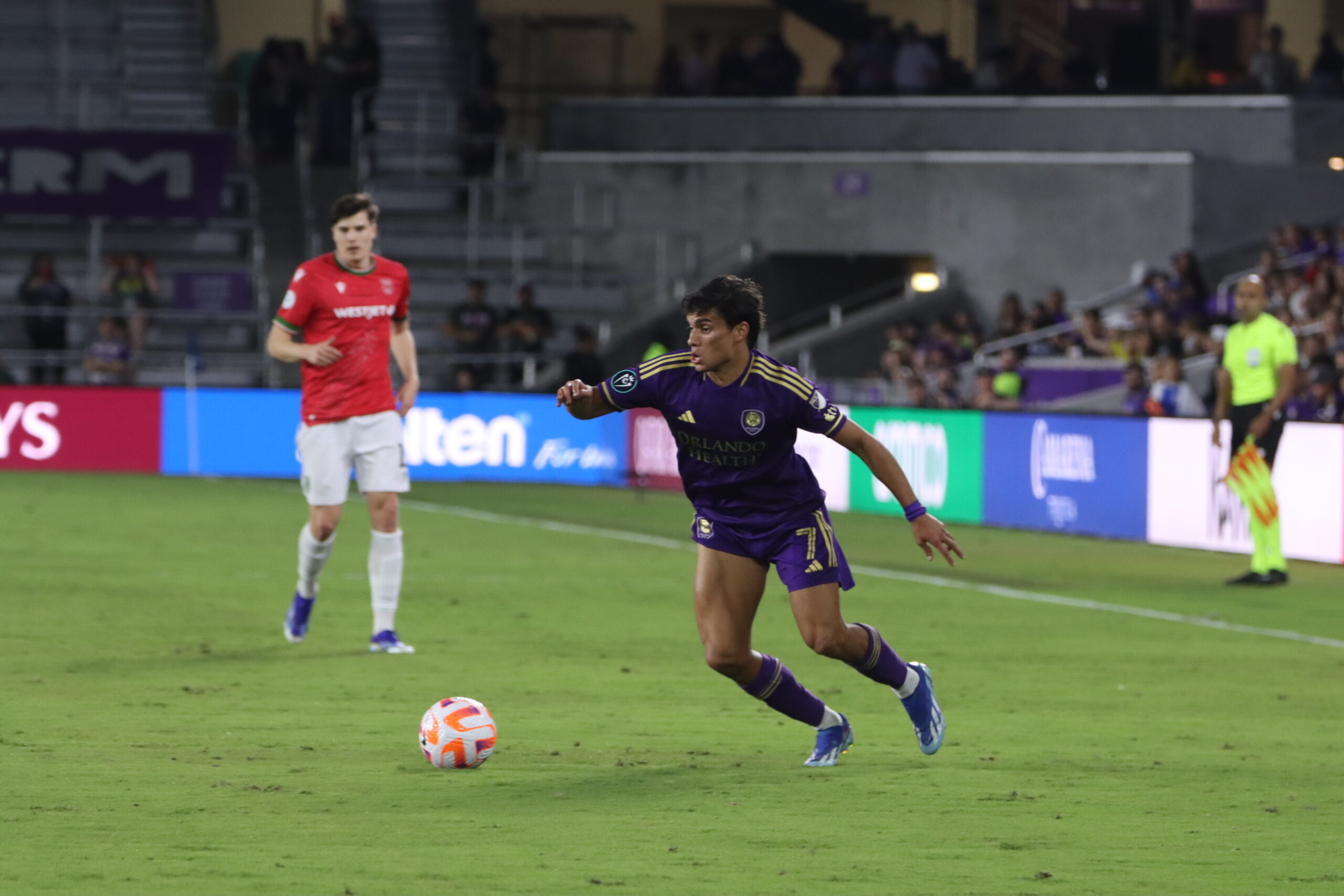
Since Orlando City’s 5-0 thumping of D.C. United back on July 6, Ramiro Enrique has tapped into a red-hot vein of form. He’s got four goals in four games, matching his scoring output from the entirety of the 2023 season, and doing so in four matches and 245 minutes, as compared to 30 matches and 1,019 minutes last year. That brings us to the big question: is this sort of output sustainable?
We’ll start by looking at the expected goals on each of his four tallies. While xG isn’t a perfect statistic, it provides a fairly good measure of how good a chance is. To get a clearer picture, we’ll also take a look at each goal to help gauge how difficult the chance is.
Against D.C. United, Enrique latched onto a flicked-on header from a corner kick and used a header of his own to score the Lions’ fifth and final goal of the night. That strike had an xG of 0.1. In truth, that number seems a bit low to me, as once Enrique’s in front of his defender, he has the whole net to aim at, and the ball comes in at a great height for him to get his head on it. He makes no mistake and sticks it into the side netting, where the goalkeeper has no hope of reaching it.
Against the New England Revolution, the Argentine again scored from a corner, sneaking in front of goalkeeper Aljaz Ivacic and flicking the ball past him before he could collect Cesar Araujo’s header. His second goal of the season had an xG of 0.4. That number seems more reasonable to me. Once he does the hard work of losing his marker and getting across Ivacic, the goalkeeper is helpless to stop any ball that isn’t coming straight at him, and it’s a good finish.
Against Nashville, he collected a pass from Ivan Angulo a few yards outside of the six-yard box and blasted it off the crossbar and in. The tight angle from which he scored means the xG of 0.04 isn’t too surprising. Once again, Enrique managed to lose his defender and got himself into a really nice area of open space. The finish is outstanding, but it wouldn’t have been surprising to see a save or shot off target from this angle.
His fourth goal of the year had elements of skill and luck, as he redirected Martin Ojeda’s shot against NYCFC. The effort from Ojeda took a deflection off Enrique that caught the goalkeeper leaning the wrong way and had enough pace to carry it into the net, for an xG of 0.11. Again, I’m surprised the number is as high as it is. That’s probably due to the deflection happening in the box and leaving Matt Freese next to no time to react. While it was a clever touch to redirect it, there was also a good deal of luck involved.
Those totals add up to 0.65. In other words, Enrique would be estimated to score 0.65 goals off those chances (or one, rounding up, as there are no fractions of goals), and he instead bagged four. There are a couple ways you can view that. The optimist would say that he’s simply a good finisher and has been making the most of the chances that have come his way, even when they aren’t very good ones. The pessimist would say that him converting low percentage chances at this rate isn’t sustainable, and he’s due to regress back to the mean soon.
We can also look at the bigger picture of his statistics up to this point in the year. Across 11 games and 483 minutes, Enrique has taken 18 shots, put nine of them on target, and scored from four of those. He’s also got a season xG of 3.52, which is pretty much in line with his goal total of four, although he’s slightly outperforming it. That isn’t a bad thing though, as the best strikers score difficult chances too, not just the easy ones. Cristian Arango, Christian Benteke, and Denis Bouanga are the top three scorers in the league, and Bouanga is the only one not outperforming his xG (17.68 xG compared to 16 goals).
In my opinion, the truth of Enrique’s case lies somewhere in between. He’s put 50% of his shots on target this year, which is a great number, and getting the ball on frame is half the battle in this sport, so that’s an encouraging place to start. Each of his first three goals in 2024 came as a result of getting into space in a dangerous area and making no mistake with his finish once the ball arrived. Against D.C., he did well to get in front of his defender. In New England, he snuck in from the blind side of the defense. And against Nashville, he found space in the box and stayed onside until Angulo was able to find him. That sort of movement and ability to get yourself into dangerous areas is something that can be replicated, even if finishing low-percentage chances like the strikes against Nashville and NYCFC probably isn’t.
If Enrique continues being clever with his movement and finding dangerous spaces, Orlando’s offense has begun to look fluid enough that his teammates will find ways to get him the ball. As long as he keeps getting shots on frame and his finishing stays sharp, it isn’t unreasonable to assume that he’ll grab some more goals this year. It probably won’t be at the rate he’s done so in July, but if nothing else, he should be able to provide some extra firepower to an OCSC attack that has woken up in recent weeks. Keep your fingers crossed, folks. Vamos Orlando!
Lion Links
Lion Links: 7/26/24
Orlando City plays CF Montreal tonight, USWNT wins against Zambia, Marta provides assist in Brazil’s win, and more.
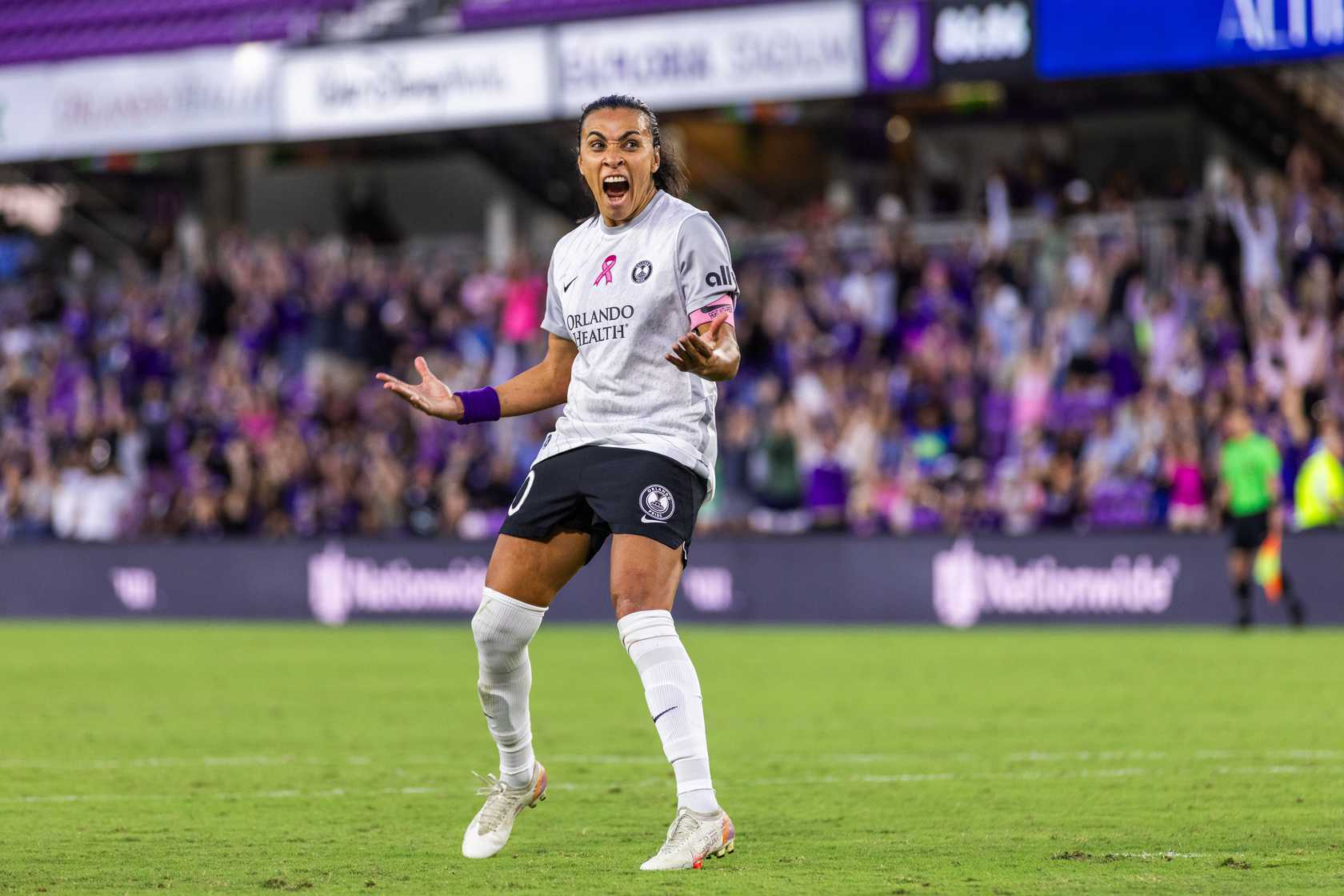
Happy Friday! I hope the work week has gone easy on you as we get ready for a weekend filled to the brim with soccer to enjoy. The Olympic opening ceremony is also today, and I’m interested to see what the organizers in Paris have come up with. But for now, let’s get this Friday started with today’s links!
Orlando City Takes On CF Montreal Tonight
The Leagues Cup kicks off today and Orlando City will host CF Montreal tonight in its first of two group games. The Lions will then take on Atletico de San Luis on Aug. 4. It’s worth noting that these games will go into a penalty shootout if the score remains level after 90 minutes, with the winner of the shootout getting an extra point. The top two teams of each group advance to the next round and Orlando will play the Philadelphia Union, Cruz Azul, or Charlotte FC if it survives the group stage.
USWNT Beats Zambia in Summer Olympic Opener
The United States Women’s National Team started its Olympic campaign with a dominant 3-0 win against Zambia. The USWNT’s attack looked free and dangerous, with Trinity Rodman striking first and Mallory Swanson scoring twice in quick succession to give the USWNT a comfortable lead. Those goals also came before Zambia was reduced to 10 players after a red card to Pauline Zulu. The Orlando Pride’s Barbra Banda and Grace Chanda both started for Zambia, although Chanda was subbed out in the first half when Zambia had to make changes due to the red card.
There is some bad news along with the good for the USWNT though. Jaedyn Shaw missed out on playing in the opener due to a leg injury, and Sophia Smith had to exit in the 42nd minute.
Marta Assists in Brazil’s Olympic Win
The USWNT was far from the only team to win its first game of this year’s Olympics, as there were no draws after the first round of games. Pride star Marta provided the assist on Brazil’s only goal in a 1-0 win over Nigeria. Marta did well to pick out Gabi Nunes from a tough angle, and the striker had a great first touch and strike to put it away. Pride defender Rafaelle helped secure the shutout, with Brazilian goalkeeper Lorena coming up with huge saves as well. Elsewhere in Group C, Spain’s Aitana Bonmati had a goal and an assist in her team’s 2-1 win against Japan.
New Zealand struck first against Canada in Group A, but the Canadians rallied to come back and win 2-1. France scored three goals in the first half and survived a rally from Colombia in the second half to win 3-2. Germany may have had the most impressive win so far, beating a talented Australian side 3-0.
Analyzing New Zealand Ahead of Olympic Clash
The United States Men’s Olympic Soccer Team will aim to bounce back from a loss to France when it faces New Zealand on Saturday. New Zealand beat Guinea in its first game and is coached by Darren Bazeley, who led New Zealand to the knockout stage of the 2023 U-20 World Cup. Minnesota United center back Michael Boxall and Viking FK midfielder Joe Bell are two of New Zealand’s overage players and give the team some stability. Goalkeeper Alex Paulsen, who joined Bournemouth this summer, is capable of coming up with acrobatic saves to give the U.S. fits as well. As for New Zealand’s attack, midfielder Sarpreet Singh and striker Ben Waine are a couple of the dynamic players the U.S. will have to keep in check.
Bev Priestman Removed From Canadian Olympic Team
Canada will have to go the rest of the Olympics without Head Coach Bev Priestman, who was removed from the team by the Canadian Olympic Committee. This decision comes amid a scandal involving spying on New Zealand’s training, which led to Canada Soccer suspending Priestman for the rest of the tournament. Reports have also surfaced that Canada’s men’s and women’s teams have tried to spy on opponents for years, including during the women’s team’s winning campaign in the 2021 Olympics. Only time will tell if Priestman will coach the team after this tournament and if punishments for the team’s actions will be handed out.
Free Kicks
- Orlando City’s Kaleb Harrington received the Spirit of Fair Play Award for his role in the Special Olympics Unified Sports All-Star Game. The East All-Stars were victorious as well, winning 5-0 against the West All-Stars.
- Chicago Red Stars defender Sam Staab was placed on the season-ending injury list after suffering a torn Achilles in the team’s Summer Cup match against NJ/NY Gotham FC.
- FC Cincinnati has signed Chidozie Awaziem from Boavista in Portugal’s top flight to help fill the club’s need at center back due to injuries to Matt Miazga and Nick Hagglund.
- Paraguayan center back David Martínez joined Inter Miami on loan from River Plate. The loan lasts through July of next year and also includes a purchase option.
- San Diego FC signed center back Patrick McNair as its fifth player before taking the field next year. McNair will spend the rest of 2024 on loan with West Brom.
- Minnesota United signed midfielder Joseph Rosales to a new contract that will keep him in Minnesota through 2027, with an option for 2028 as well. The 23-year-old is having a breakout year of sorts for the Loons, recording 10 assists in 21 appearances.
- Paris Saint-Germain is reportedly willing to pay Spanish winger Nico Williams double what Barcelona would pay the 22-year-old in order to sign him.
That’s all I have for you today. I hope you all have a fantastic Friday and rest of your weekend. Enjoy the Olympics!
Orlando City
Orlando City’s 2024 Offensive Blueprint (So Far)
An evaluation of how Orlando City has been trying to score goals in 2024.
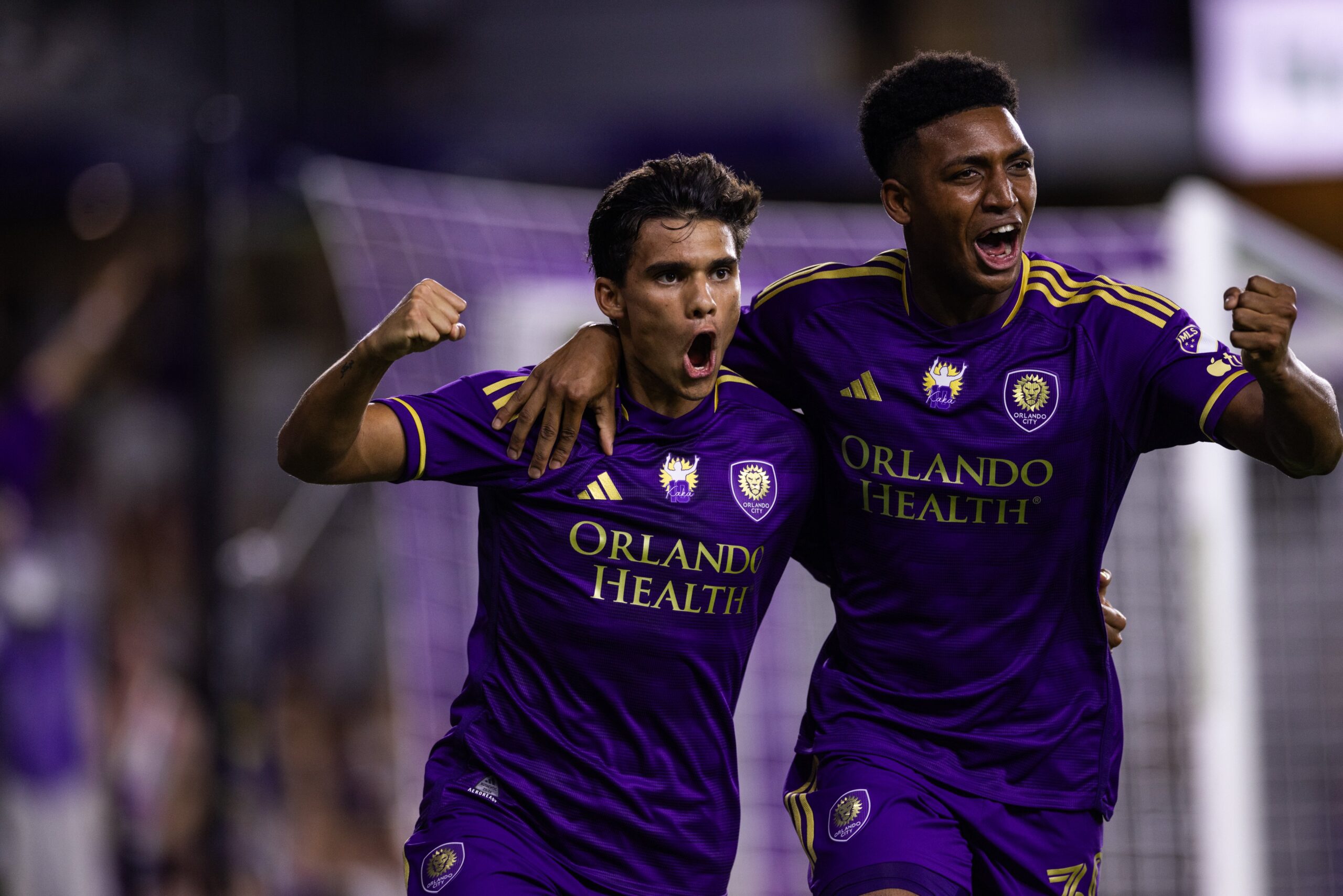
Jay-Z released one of my all-time favorite albums, The Blueprint, in 2001. With apologies to him, and his track on that album called “Girls, Girls, Girls,” what we as fans want are goals, goals, goals, and we want our team to score as many of them as possible. In this article I will explore Orlando City’s attacking style — some might say their attacking…blueprint — thus far this season and evaluate how the Lions have been trying create those goals we do adore.
All right, now that we have pushed the limit on puns and wordplay about that album, let’s look at some numbers related to Orlando City’s offense. First, let’s start with the direction of play, because Orlando City has a very clear plan of attack in 2024, and it involves the left side. According to the tracking from whoscored.com, Orlando City attacks down the left side on nearly half of its possessions.
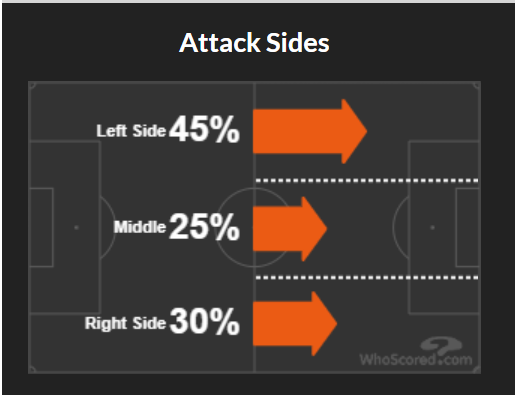
No team in MLS favors one side of the field as frequently as Orlando City’s 45% on the left side, and it is interesting that it is so high down the left because Facundo Torres, generally regarded as the squad’s most creative and dangerous player, plays most frequently on the right side of the field. I think there are three primary reasons for the left side favoritism:
- Iván Angulo is one of the fastest players in MLS and spends most of his time on the left side of the field, so the team tries to get him into space so he can use that speed to get the defense on its heels.
- Orlando City has three left-footed players who love a cross so much I am surprised they play for Orlando City and not Vatican City. Rafael Santos averages 5.1 crosses per 90 mins (27th in MLS), Nico Lodeiro averages 5.6 (16th), and Martín Ojeda averages 9.61 (second). Ojeda has been playing more centrally recently, but he still drifts to the left frequently. Lodeiro does the same, and Santos nearly exclusively stays on the left side. All three of them are crossing machines.
- Torres loves to cut back into the middle from his normal slot on the right side of the field, and so crossing it from left to right gives him space to operate, as the defense has to recover on a switch of field, and a scrambling defense against a talented attacking player is advantageous for Orlando City. Torres is fifth in MLS in receiving passes from 10+ yards away in the offensive area of the field, and his per-90-minute average for those receptions has increased from 2022 (8.4) to 2023 (9.8) to 2024 (11.4). Additionally, here is Facu’s shot chart for the year, courtesy of fotmob.com, and you can see that of his seven non-penalty-kick goals, all of them come from the right half of the field (his most recent goal against New England is highlighted with the red circle, because after a few minutes I gave up on trying to figure out how to show this without having one highlighted):
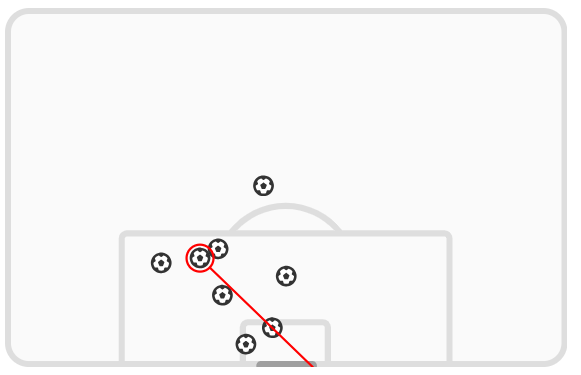
Expanding a little bit off of the direction of play, but returning to the second item in the list above, Orlando City leads all of MLS with an average of 21.32 crosses per 90 minutes. The other 28 MLS teams average 16.6 crosses per 90 minutes, so Orlando City is crossing the ball 28% more frequently than the average MLS team. The Lions have a physical presence in Duncan McGuire in the middle, so this makes sense to target him with crosses into the 18, and in fact the team is fourth in MLS this season with an average of 2.4 completed crosses into the penalty areas per 90 minutes.
It is not just Duncan though, of the 36 goals Orlando City players have scored this season (the other three are own goals), nine of them have come on a header and by eight different players. That 25% of goals scored on a header is the highest percentage for any Orlando City team in fbref.com’s tracking (goes back to 2018) and ranks the team only behind Austin FC’s 29% in MLS this season.
All crosses do not necessarily end in headers, but nearly all headers come from crosses, and the irony of the fact that Orlando City is scoring a high percentage of its goals from headers is that the Lions rank, to use a technical term, DFL in the league in percentage of aerial balls won (40.1%, and the next lowest is 45.4%). It’s kind of like the tagline to those Most Interesting Man in the World beer commercials from Dos Equis — the Lions don’t often win aerial balls, but when they do, they score goals.
Flipping from balls in the air to balls that are generally played on the ground, according to the data tracked by Opta on fbref.com, Orlando City is seventh in MLS in completed through balls per 90 minutes with an average of 1.5. The Lions have been in the top third of MLS in four of the last five seasons in this statistic, as this is clearly a staple of an Óscar Pareja-coached squad.
If you look at the individual MLS players who are leading the league in completing these dangerous balls, it is a veritable who’s who of creative players across the league. Say what you will about Luis Muriel, and I wrote a whole article about him a few weeks ago, but his passing ability is excellent, and it did not surprise me at all to see him high on this list and among the other well-known names. Here are the top 15, which also includes Lodeiro, among players who have played at least 500 minutes:
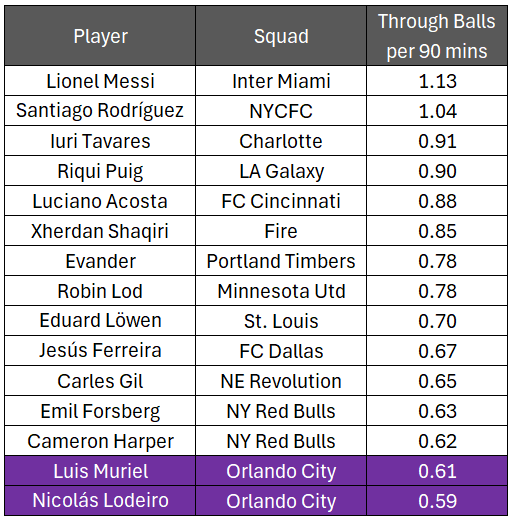
I touched on the left side focus earlier and how Angulo’s speed plays a large role in why the team plays more frequently down the left side, and that comes into play here as well with Orlando City’s predilection for playing through balls. It is also now time for Dagur Dan Thórhallsson to enter the chat, because he is just as much of a through ball target as Ruan was for several years in making speed runs up the right side of the field, and he ranks 24th among defenders in goal-creating actions per 90 minutes (0.24). Coincidentally, he also ranks 24th in shot-creating actions per 90 minutes (2.0). McGuire is also a target for these through balls as he makes excellent shallow runs behind defenders to then run onto balls played in front of him, and Ramiro Enrique is also pacey enough to do the same.
The completed crosses and through balls, as well as the fact that Orlando City is in the top 10 in total completed passes per 90 minutes, contribute to the team leading MLS with 10.1 completed passes into the penalty area per 90 minutes. The rest of MLS averages only 8.4, so Orlando City’s offensive tactics puts the team 20% higher than the rest of the league in terms of its frequency of completing passes to teammates inside the box.
Now, what teams want are goals, not completed passes into the penalty area, but you can see what the Lions are trying to do offensively by looking what these numbers reveal about how they are directing their attacking play.
Orlando City has a burner on the left (Angulo) and also several left-footed players who have the ability to whip in a dangerous cross (Ojeda, Lodeiro, Santos), so the focus is more on going down the left than the middle or the right. The Lions do have a fullback (Thórhallsson) with pace on the right too, so he is a target when they go right, and as a former midfielder, he has the ability to create offense coming forward, so he does with great frequency. The best finisher (Torres) is out on the right but loves to cut back to his left, and this year there is a higher focus on getting him the ball in space as opposed to having him leading the buildup.
Three players (Ojeda, Lodeiro, Muriel) are sharing the 10 role and releasing through balls to the outside and inside threats, and McGuire and Enrique are essentially serving as soccer versions of a basketball rim runner, attacking the goalmouth and trying to score in any way possible.
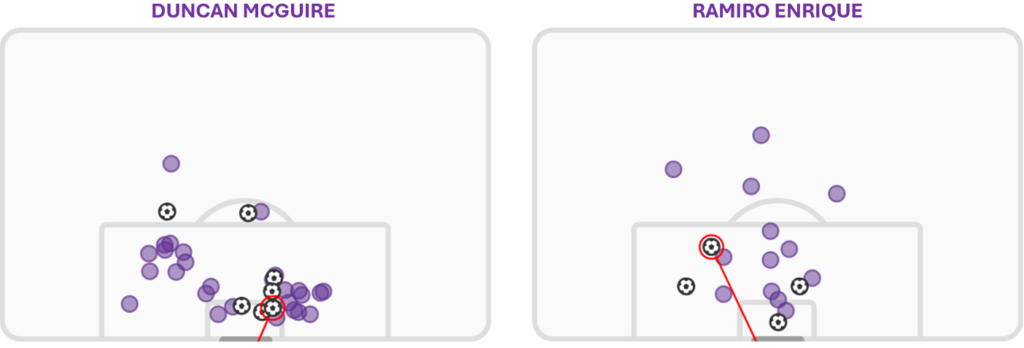
It all sounds great on paper, but for much of the season the offense was sputtering — so much so that Orlando City has scored more goals in the last seven games (20, 2.9 goals per game) than it did in its first 18 games (19, 1.1 goals per game). The first half of the season contained several issues that I believe contributed heavily to the low goal-scoring output, with several injuries, games missed for international duty, and competing in Concacaf Champions Cup at the same time as the start of the regular season, forcing squad rotation and players playing outside of their normal positions.
There was also just some poor play during those early months as well, some self-inflicted poor performances. I believe that Orlando City has found something though in the last few weeks, and while the Lions may not score 2.9 goals per game for the rest of the season, I think that what we have seen recently is a settled team of players who know their roles and understand the strategy, and who have the ability to execute that strategy.
Just 17 years after it was released, Jay-Z’s The Blueprint was selected by the Library of Congress for preservation in the United States National Recording Registry for being “culturally, historically, or aesthetically significant.” Let’s hope that 17 years from now, in 2041, we are all looking back fondly on what became an athletically significant 2024 season for Orlando City.
-
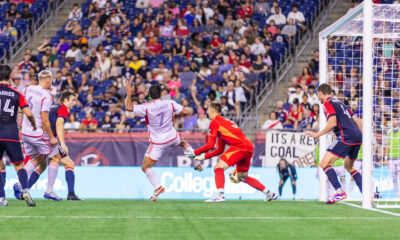
 Orlando City2 weeks ago
Orlando City2 weeks agoOrlando City vs. New England Revolution: Final Score 3-1 as Lions Finally Win at Gillette Stadium
-
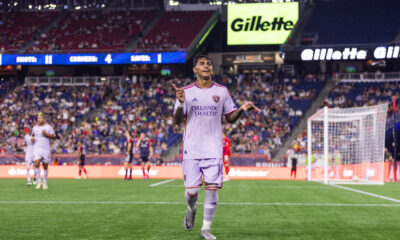
 Orlando City2 weeks ago
Orlando City2 weeks agoOrlando City vs. New England Revolution: Player Grades and Man of the Match
-
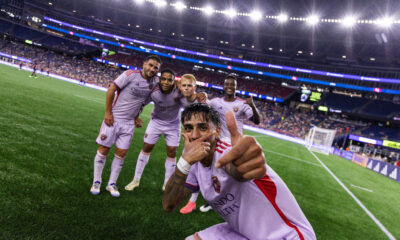
 Orlando City2 weeks ago
Orlando City2 weeks agoOrlando City vs. New England Revolution: Five Takeaways
-
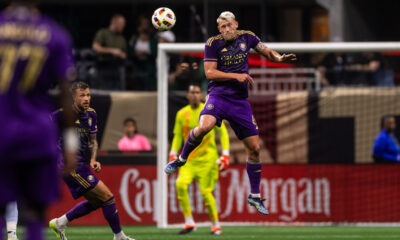
 Orlando City2 weeks ago
Orlando City2 weeks agoHow Should We Make Sense of Orlando City’s Defense in 2024?
-
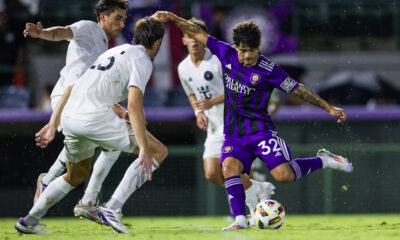
 Orlando City B2 weeks ago
Orlando City B2 weeks agoOrlando City B vs. Inter Miami II: Final Score 1-1 as OCB Draws Rivals and Claims a Second Point in Penalties
-
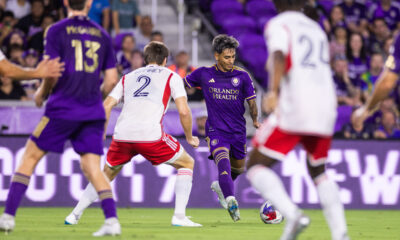
 Orlando City2 weeks ago
Orlando City2 weeks agoIntelligence Report: Orlando City vs. New England Revolution
-
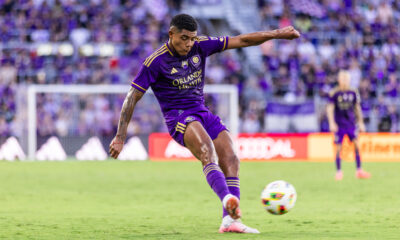
 Podcasts2 weeks ago
Podcasts2 weeks agoPawedCast Episode 432: New England Preview, OCB Set to Host Inter Miami II, and More
-
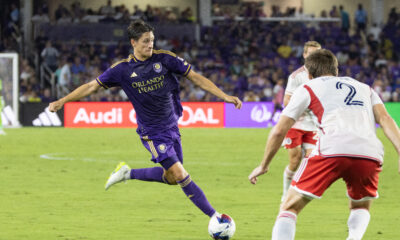
 Orlando City2 weeks ago
Orlando City2 weeks agoOrlando City at New England Revolution: Three Keys to Victory


